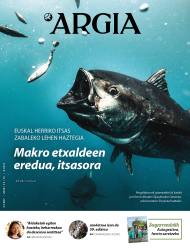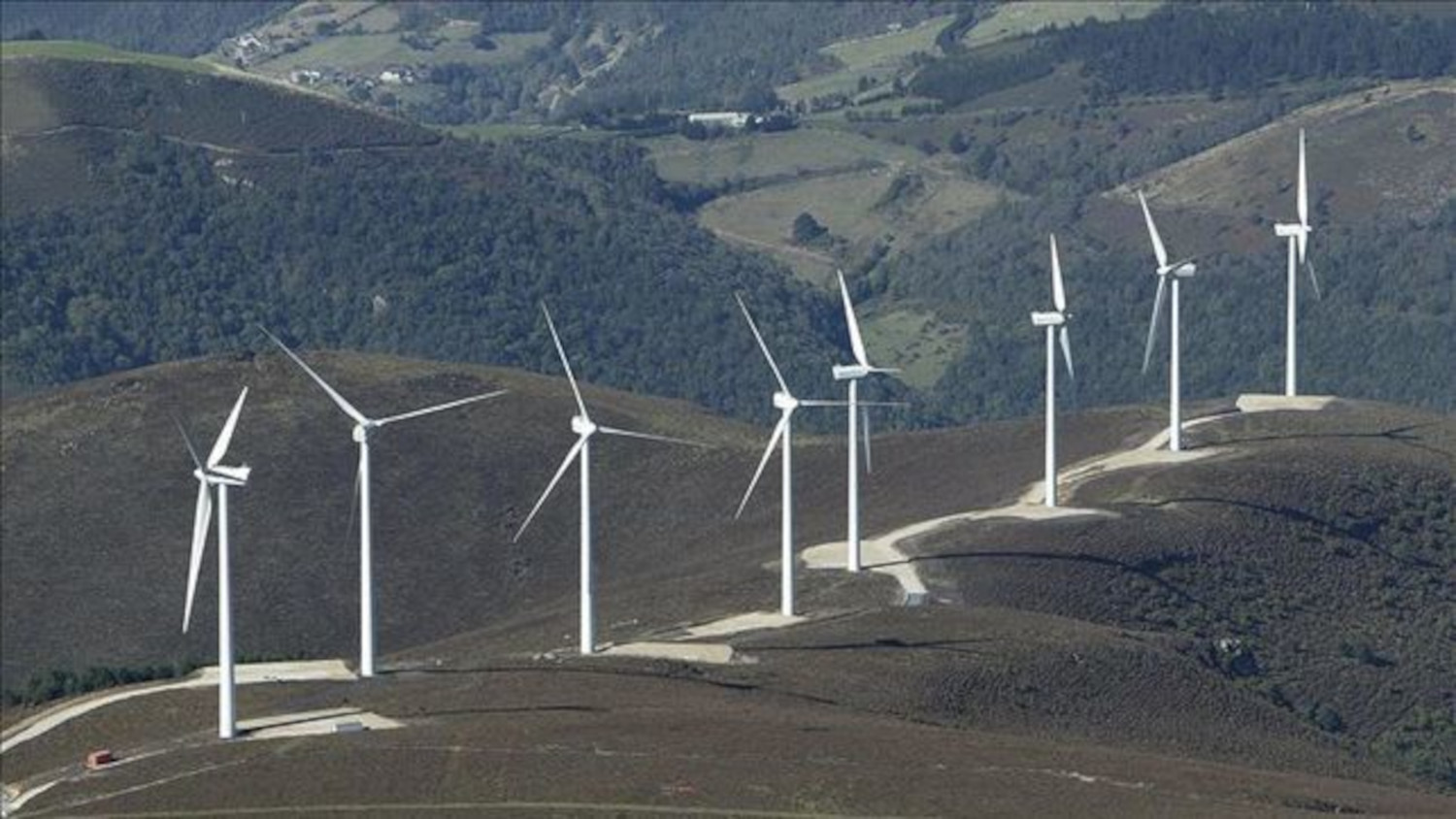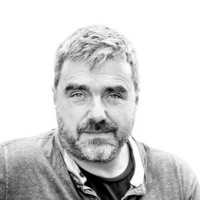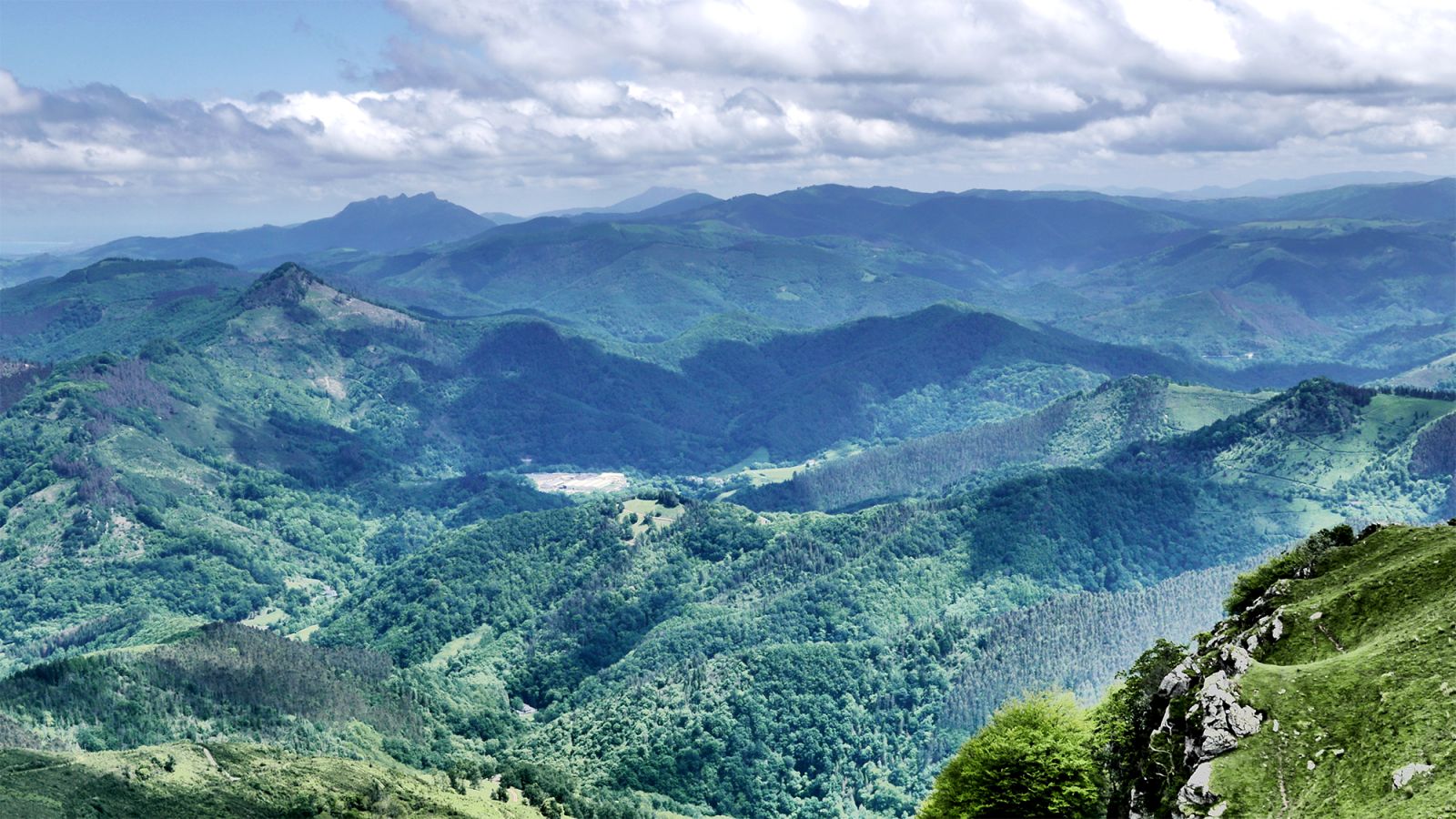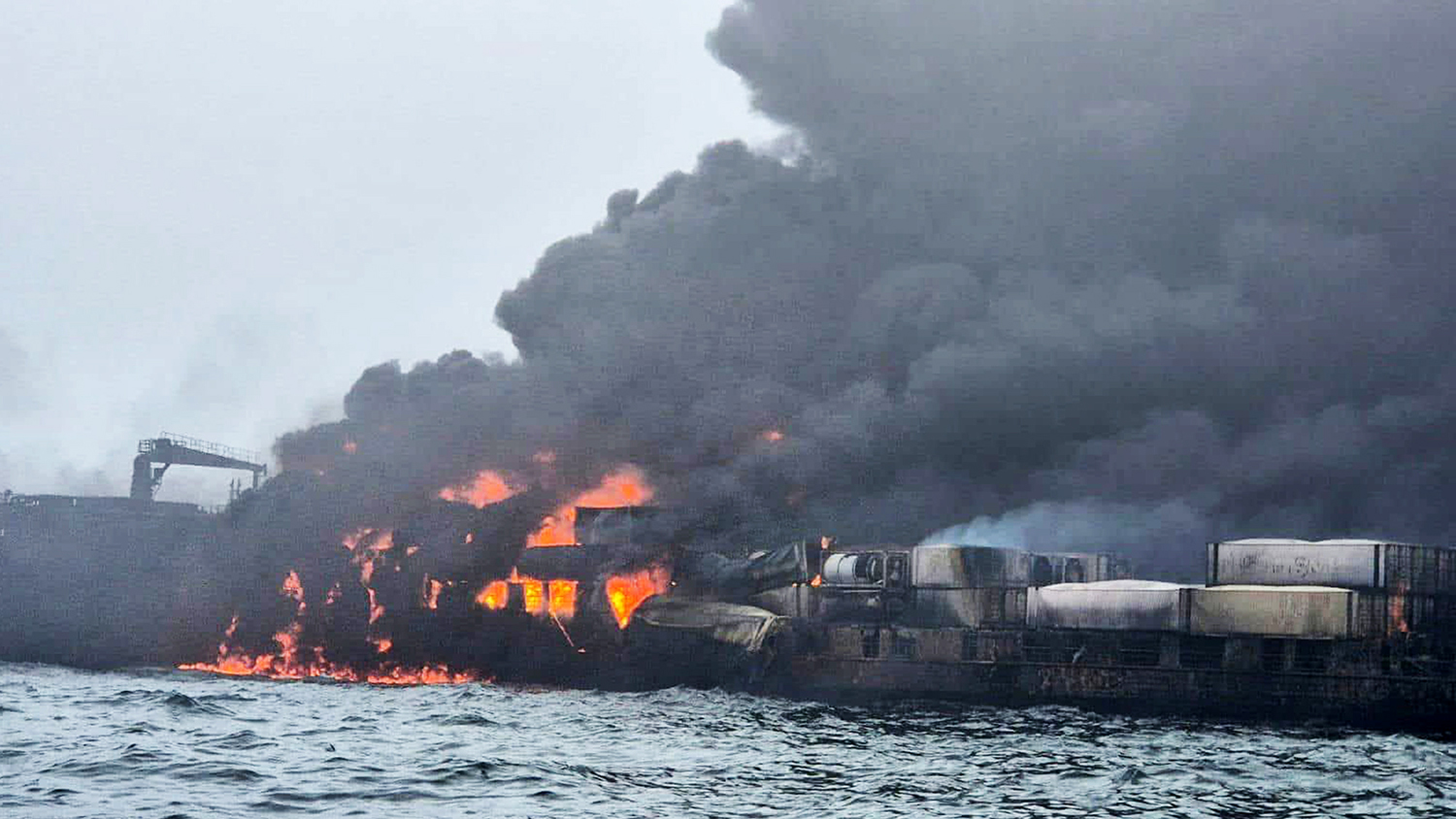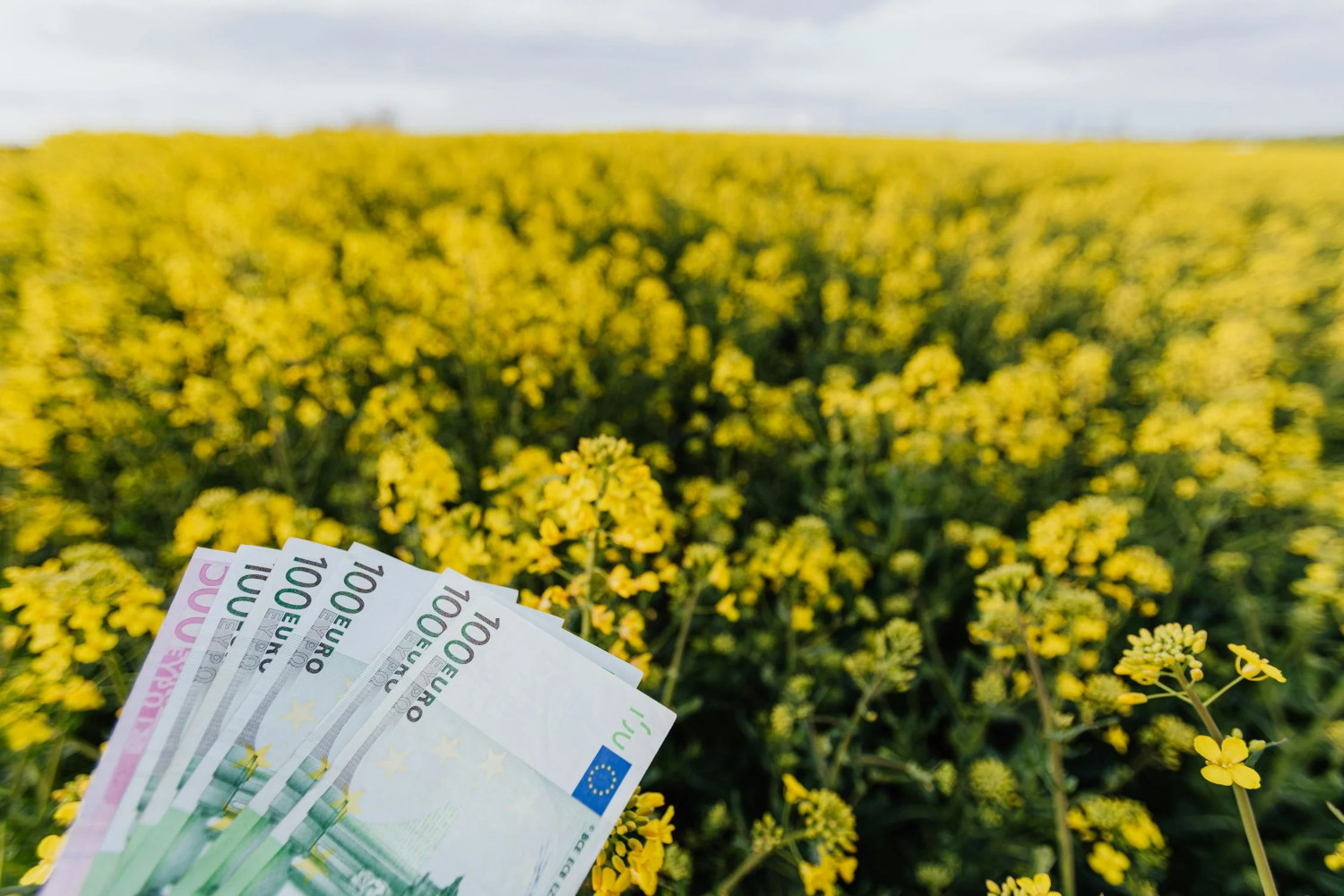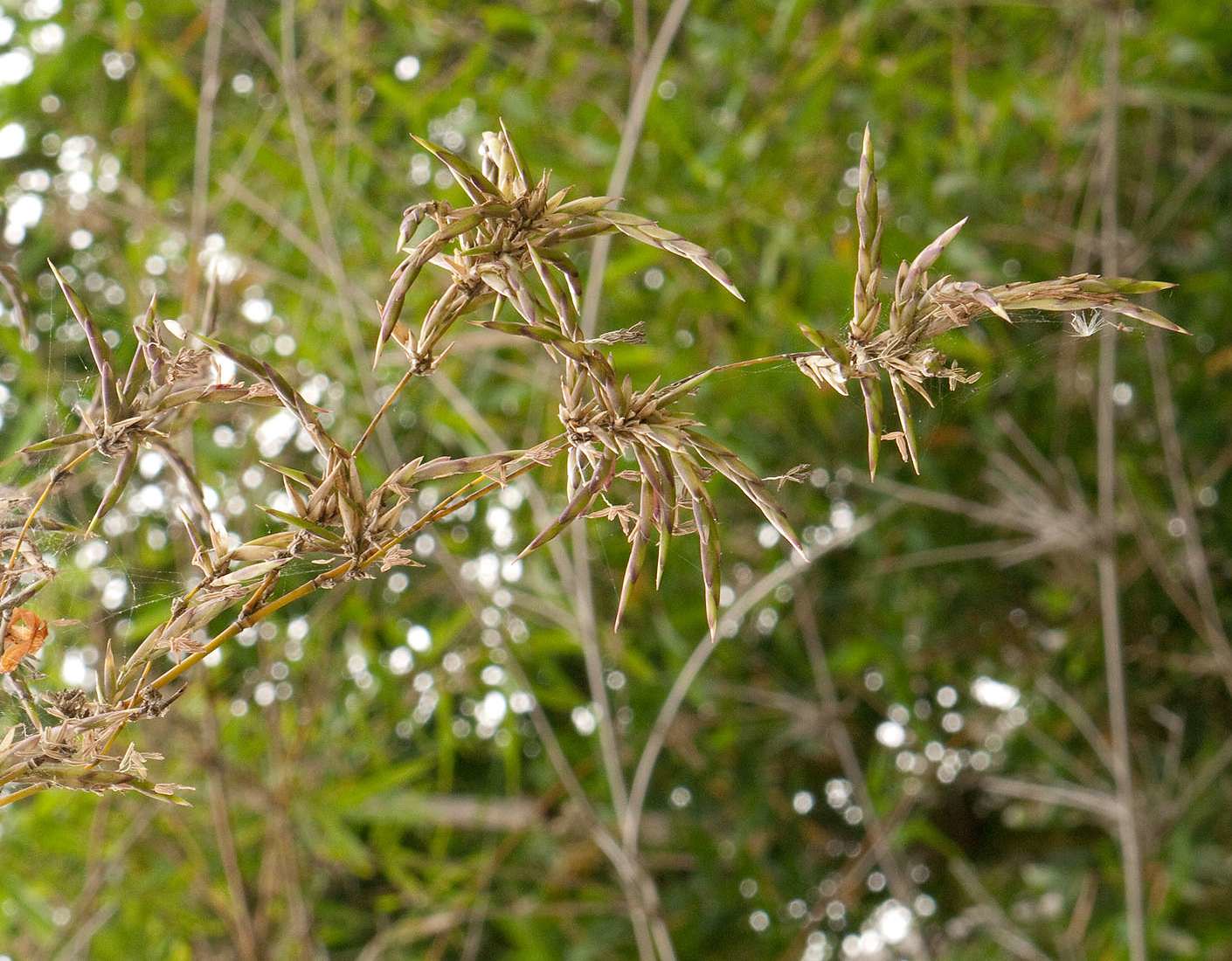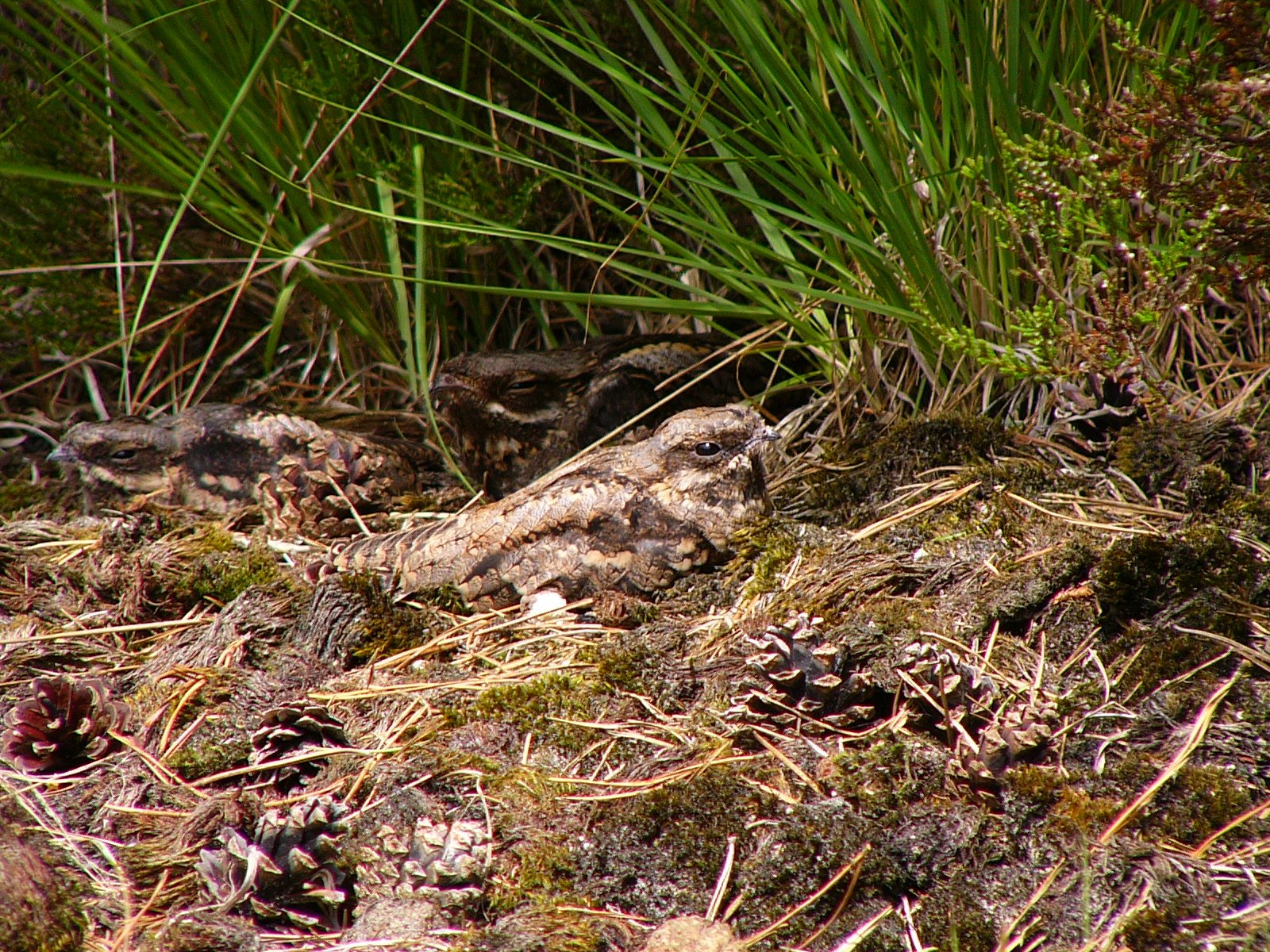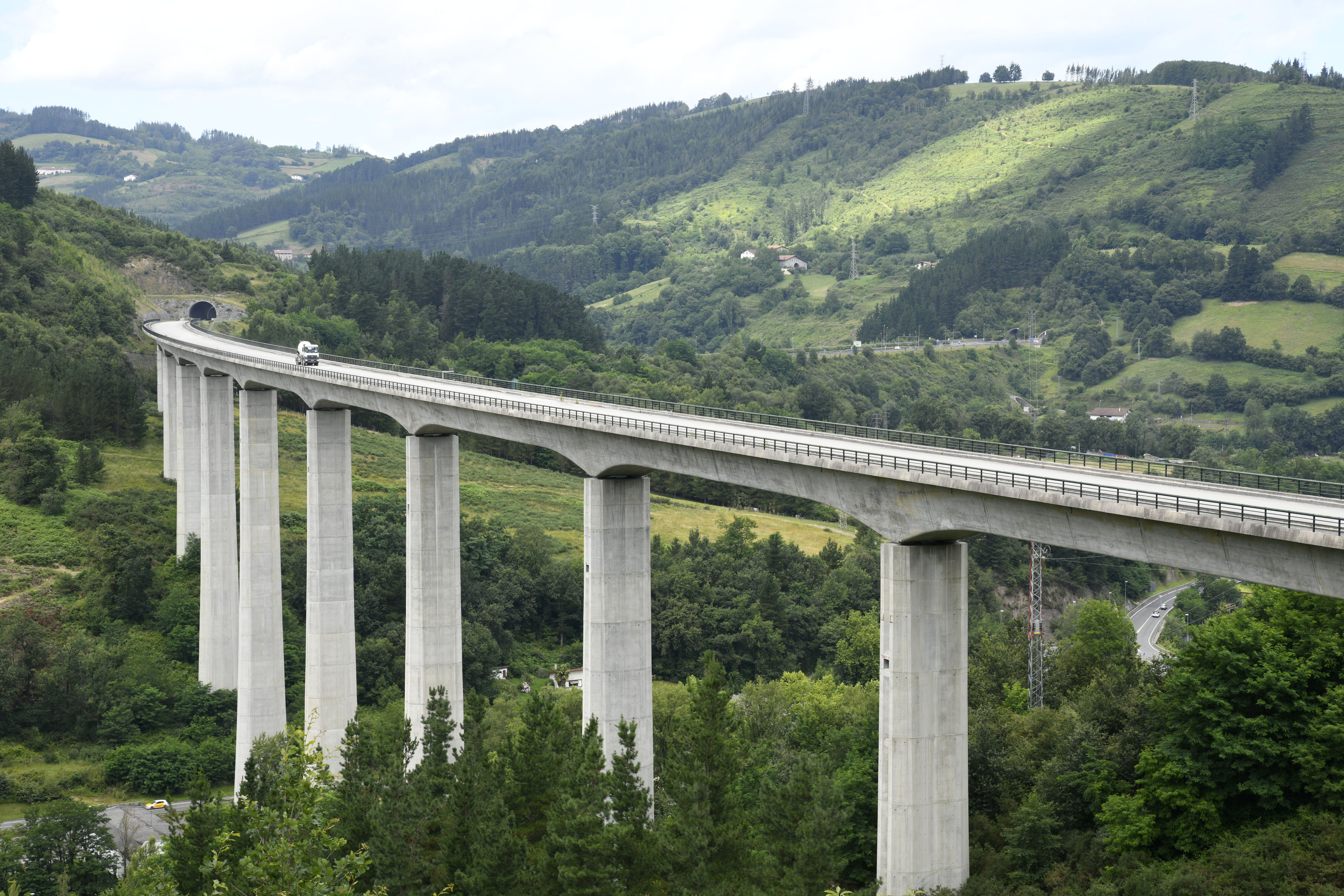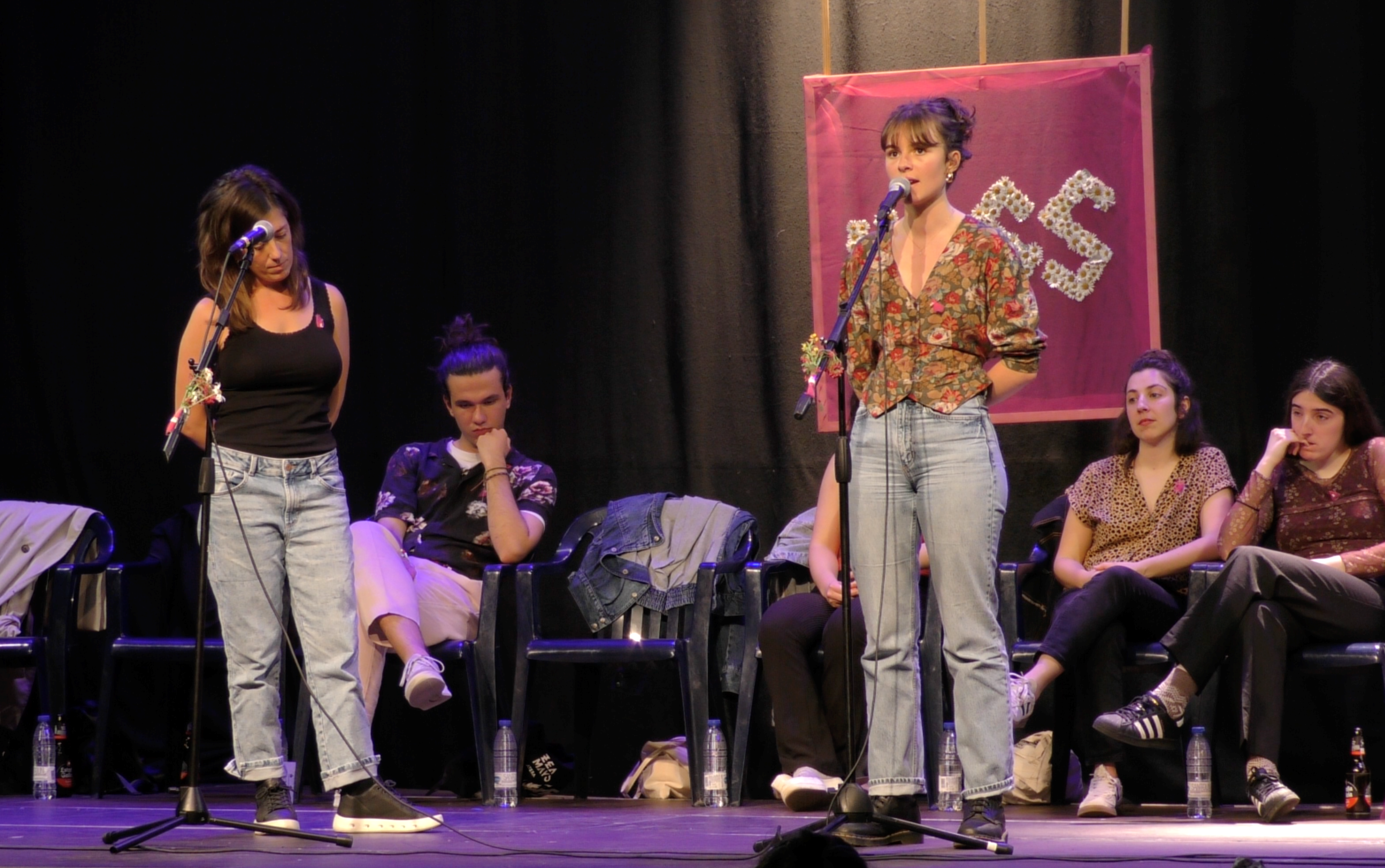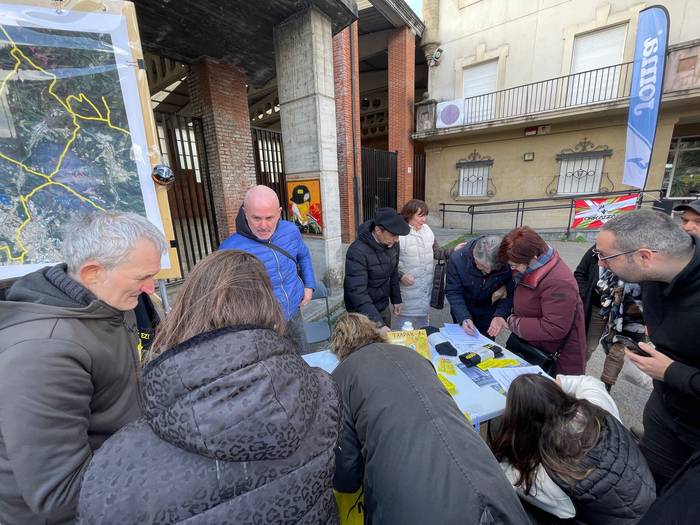Fishing for the future in a cage
- The first fish farm in the Basque Country has just emerged at sea in Getaria (Gipuzkoa). Two cages of 50 meters in diameter and 40 in depth have been installed, and if they adapt well to sea conditions, this summer is expected to grow 50 bluefin tuna, also known as bluefin tuna, and in Getaria it is called Zimarroi. The project has aroused great uncertainty and curiosity in the people, surely because instead of in its own right, it is understood as a further attempt at global transformation of the primary sector.

The share of bluefin tuna for Basque fishermen is currently being fished in the Mediterranean Sea, so the contribution of this quota to our coast is good news from the point of view of the sector. Or maybe not so much? What are the consequences of greater industrialisation of fisheries? Who will eat the fattened tuna there? What do local fishermen say?
In order to respond to the interest of the citizens, the Basque Association Artzape, the Mater Ontzi Ecoactive Museum and the BluePoint Marine Pollution and Blue Economy Intelligence Center organized a round table on 14 November in Getaria. The objective was clear: to encourage reflection, to spread concerns, questions and doubts and to have the opportunity to speak in the town square. To this end, four front-line speakers were involved: Leandro Azkue, Director of Fisheries and Aquaculture of the Basque Government; Lorea Flores, coordinator of Geenpeac of the Basque Country; Leo Belaustegi Ondarroa, former fisherman and member of the Association 12 Miles; and Tomás Otamendi, president of the Association of Amarristas Malkorbe and sports fisherman. Izaskun Suberbiola, head of the Mater Ecoactive Museum Boat, was unable to attend the appointment for last-minute reasons. As moderator, the citizen Mirene Begiristain started the table: "The climate crisis is significantly affecting several territories, including the sea, where it is occurring. Understanding that the nursery being implemented can be part of it, we want to bring here the questions, knowledge and information we can have about it".
In this video you can hear the whole round table:
What do we know about the Zimarroi nursery?
The first bluefin tuna or bluefin tuna breeder has just been set off on the shore of the Basque Country. The boat has landed in Getaria (Gipuzkoa), 3.6 miles from the Gipuzkoan port. These are two cages of 50 meters in diameter and 40 meters in depth, and if the tests work, some 50 red tunas will be ceded in the area in June. The objective is to fatten 1,100 tonnes in three or four years. The project has been promoted by the Basque Government with the approval of the Confradías de Bizkaia and Gipuzkoa and the approval of the municipalities of Zarautz and Getaria. To design and build the project, the company Itsas Balfego was created, located between the Catalan company Balfegó and Azti.
That is what we know and, apparently, not much more, as uncertainty and lack of information were widespread in the round table before the citizens. The starting point for Otamendi was the obstacles to navigation, three and a half miles from the port, since no one has passed the warning or given them the security they have to give. "The Administration has not told us anything."
This nursery has again highlighted, among other things, the issue of quotas. Belaustegi explained that, due to the distribution of quotas, fishermen engaged in small arts do not have the possibility to catch the shellfish, while "the large ones have quota, do not want to fish them and are selling that quota". Azkue confirmed: "Tuna quotas are sold here to two large companies in the Mediterranean," he said. Otamendi is also concerned about the transfer of quotas that could correspond to indigenous artisanal fishing. Azkue, however, saw it differently and said that with this project they wanted to test "if it is possible to transfer to the Cantabrian Sea the quota that is now becoming fat in the Mediterranean and that there is a new economic activity here".
.jpeg)
This is what the government called at the door of Balfe: "We contacted the company Balfegó to make a test that would allow us to gain some of our current quota of Basque fishermen in the Cantabrian Sea. To this end, the Maritime Balfego has been created. We gave them the condition that half of the company was owned by AZTI. Our scientists and technicians will study the quality and economic future of tuna caught." The press reports that 30 per cent of the property of Balfego Marítima is owned by AZTI and 70 per cent by Balfego, a fact that Azkue denied and that it is estimated that both entities will have half ownership. As for the accounts, there is one unclarified paragraph: the share capital of the new company is EUR 250,000 – each partner contributes EUR 125,000 – but the cost of the project has risen from EUR 2,000,000. Where will he get the rest of the money from? Azkue said that 70-75% will be paid through European aid, but, if accounts are made, 25% of the two million are EUR 500,000, twice as much as the two shareholders have contributed.
Why did Balfegó? According to the Director of Fisheries and Aquaculture of the Basque Government, "because it is the one that gives us the most confidence in the two big companies in fattening (...) their tuna is well known in the market and will be a good travel companion if the tests go well". The Government therefore wants to go big, because, incidentally, it would refer to Belaustegi's question: "Are we not able to launch that fish between the cofradías and the federations, instead of founding the Sea Raft, unrelated to Balfegó or, if necessary, to set up a nursery? ". It is also in the air where the sales will be made. Otamendi explained that "as tuna is, it is no longer a food, it is a luxury item" and that is why everyone "follows" it.
.jpeg)
Chicharro and verdel for tuna?
In cages that are installed in Getaria, the cimarrons will become fatter or “grease”. Flores clarified that "in order for a tuna of this type to be able to fish one kilo, it takes 20 kg more fish", which is equivalent to about 700 kg of fish. In addition, "we have to fish fish that can be our food to fatten these birds. Therefore, it enters directly into competition with human food.’ According to Azkue, ‘the species that are caught here but not eaten: sardines, chicharros, verdeles and macaelas’ will be used for barley. Belaustegi opposed: "How can a Basque Government official say that? In our dining rooms, thousands of children eat 2-3 times a week fish and it is a fish brought from all the oceans. No one knows about quality. And the chicharro, verdel, sardine -- which we catch -- will be used to fatten the cimarrons? That is unacceptable." Flores has also been suspicious: "This is not usually the most common, as indigenous fish have an economic value and are normally intended to feed human beings. So, on many occasions, these fish are used to feed the fish that are caught in other countries, usually in Africa and South America. This leads to a violation of human rights."
In addition to food, Flores warned of chemical contamination (antibiotics, excrements, etc.) And the eutrophication of accumulating so many animals in one place. Eutrophication is called the presence in an ecosystem of an unusual number of nutrients, usually due to human action. Flores observed: "It makes no sense for our sea, our fishery resources, to deplete our fishermen for an outsourced product in which all the environmental impacts are left."
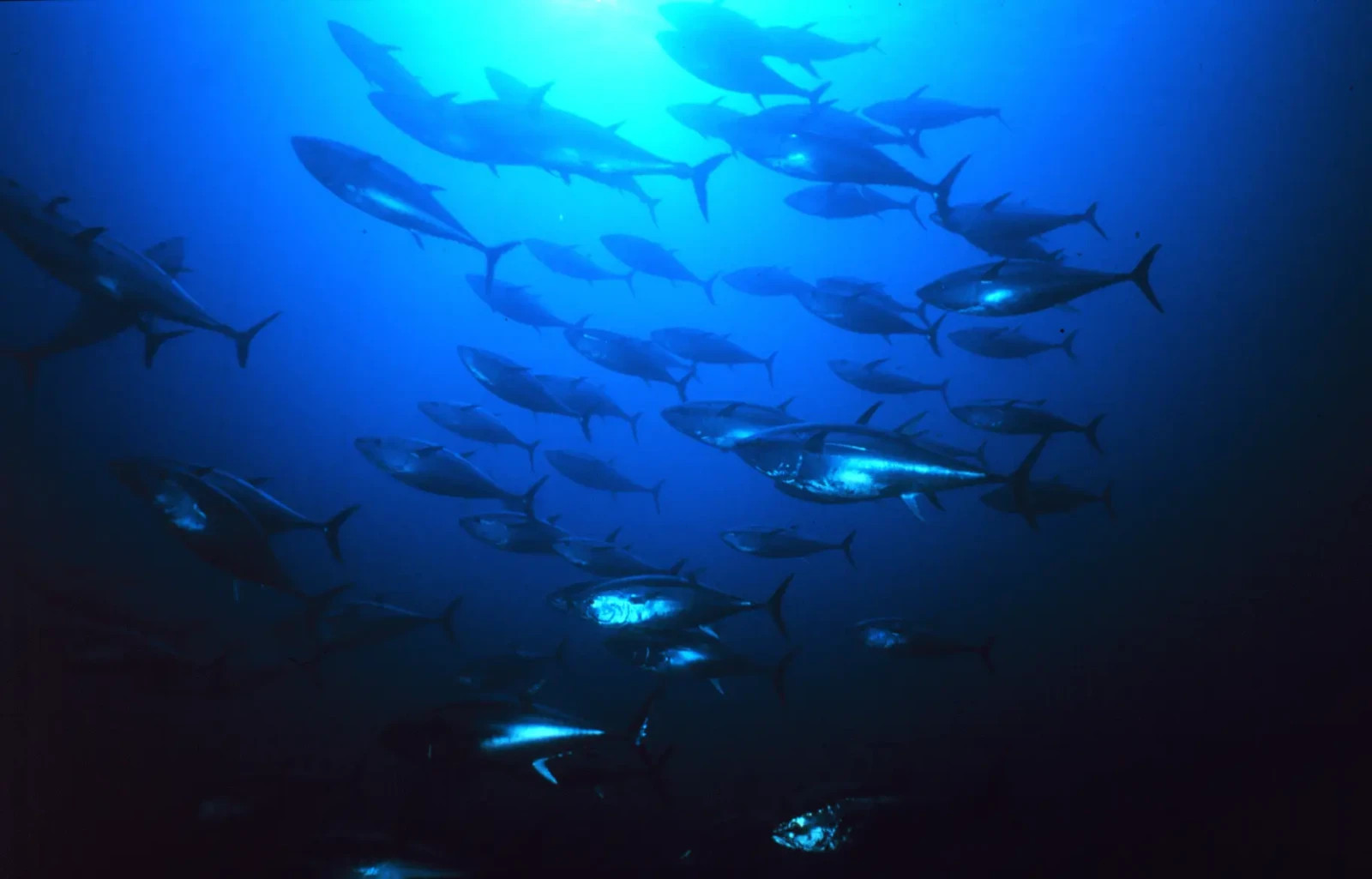
Where does the old man go?
In view of Balfegó’s data, in 2024, with the purchase of quotas for fishermen, the company has had the opportunity to catch 3,087 tonnes of bluefin tuna and just twelve days to take them out of the cages. Balfegó is a wholesale trader and the buyer also has it. Currently, it exports 75% of the production of bluefin tuna to countries such as the United States, the United Kingdom, Korea, Germany, the Arab Emirates, Portugal, Japan and a total of 32 countries. His desire to continue working in the foreign market is evident, as he participated in the III International Markets Conference, where the objective was to analyze how to enhance business in the United States. At least, it is doubtful that tuna growing in Getaria Itsas Balfego will be consumed in the surrounding villages.
What is going to be launched at Getaria is a one-year trial project. According to the member of the Basque Government, "all AZTI investigations will be public and in a year's time we will know what has been given and the possibilities offered by the project". In these studies, Greenpeace spokesman asked him to "make a real and sincere analysis of the environmental impacts he denies, as the risk is real and if they were given, the project would be suspended". The chairman of the Malkorbe committee, for his part, wished to highlight the following: "If some historic rights derived from artisanal fishing can be altered in the practice of industrial fishing, this is because the administration, the legislature and the tuna lobby go hand in hand."
The colloquium, full of questions and doubts, ended with more questions than answers. What is clear is that there is concern and uncertainty about the model and the fisheries sector and that this project can be a further step towards the industrialisation and privatisation of the sector rather than towards sustainability.
EFFECTS OF CLIMATE CHANGE
The head of Greenpeace, Lorea Flores, was in the Egonarria programme talking about tuna nurseries (the interview is located below).
He said: "We suspect that climate change is causing an increase in sea temperature and that, because the Mediterranean is experiencing a faster rise, local farms are beginning to be affected and to have less good production. On the contrary, Kantauri was not so appealing to this species precisely because of the temperature, but now it can be more at ease. It seems that Balfegó has calculated that the effects already observed in the Mediterranean will increase in the medium-long term, so he wants to prove whether he has a future in the Cantabrian Sea".
HOW IS FISHING?
How is the Basque Country fleet? In what situation are the species that fish? According to Leandro Azkue, the Basque Country fleet is ‘fortunately, very drift and varied’. In the Indian Ocean, in the Pacific and, above all, in the Atlantic, boats operate in some way in "all oceans" and each one has its own challenges and problems. "In general, the species that fish our blackberries, both inshore and high, are in good condition and thanks to the self-management measures taken by the institutions and, above all, by the fishermen themselves, the stocks of each fish are quite healthy. Today, anchovy is recovered in the Gulf of Bizkaia; the nice one, of course; also bluefin tuna; hake is slowly recovering…". One of the people in the audience bitten the hook and didn't let it go until he could speak at the end of the session: "You said at the beginning that our fish are in very good condition. They will be the ones left, because the sea bream has disappeared, the verdel has dropped by 40%, the chicharro the same, let us not say angula, is in a critical state and here, yes or no, they want to fish, professionalizing fishing".
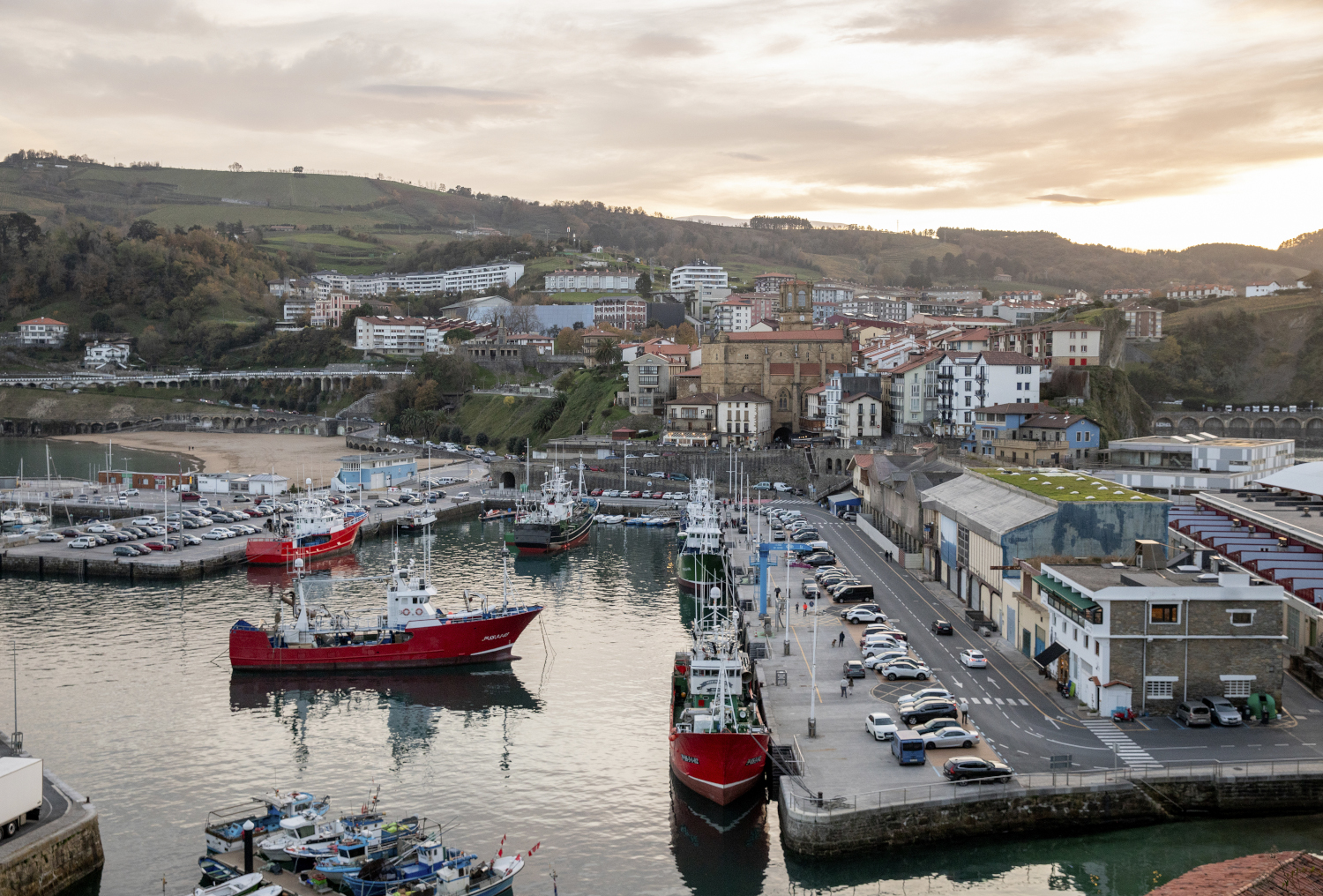
On the other hand, Lorea Flores asked for a broader look at this type of analysis, since "worldwide, more than 35% of the fishery resources are overexploited and in a very critical situation". It was he who denounced the trend of industrialization of the primary sector and explained the following conclusions: "We bring fisheries to a model that prioritizes economic benefit, with a short-term view. This means that not enough importance is attached to a quality product, to a healthy diet or to a healthy environment." It also pointed to other problems in industrial fisheries, such as the loss of biodiversity caused by the indiscriminate bycatch technique, the destruction of habitats by trawlers and the serious CO2 emissions due to the release of accumulated carbon from the seabed.
Leo Belaustegi and Tomás Otamendi have engaged in fishing, one professional and one sport. The evolution of the sector in the Basque Country is palpable, as "the cultural and economic importance of our fishing in the country has been very important", they have pointed out. Belaustegi performed an exhaustive X-ray of the fishing, almost the autopsy. "Fishing has suffered a tremendous descent, not only from incomes, and if this is not channeled, everything will fall apart. The situation is serious and solutions must be provided, but not with the incubators and accounts that have been raised, because we know why the incubators will benefit." Otamendi also defended artisanal, responsible and selective fishing and underlined cultural value. He shouted out another way of looking at fishing, because he who seeks profit does not care if he ruined the environment and the sector. However, judging by the situation, it was clear that: "We are facing a new era of fishing and so we have to take this issue," said the President of the Basque Government.
Herriko EH Bilduko zinegotzi eta legebiltzarkide den Ander Goikoetxeak egindako galdera parlamentario bati Jaurlaritzak emandako erantzunaren bidez jaso informazioa hau. Bi haize sorgailu ezartzeko asmoa dago eta Cluster Hernani izeneko proiektu zabalago baten barruan kokatzen... [+]
Lurrak guri zuhaitzak eman, eta guk lurrari egurra. Egungo bizimoldea bideraezina dela ikusita, Suitzako Alderdi Berdearen gazte adarrak galdeketara deitu ditu herritarrak, “garapen” ekonomikoa planetaren mugen gainetik jarri ala ez erabakitzeko. Izan ere, mundu... [+]
Cefiro Holdco enpresak "Domiko" deitu dion eta bederatzi makroeoliko izango lituzkeen proiektua jarri nahi du Lesaka eta Goizuetako lurretan eta ebakuazio-linea Oiartzungo azpiestaziora bideratuko luke. Espainiako Gobernuak du proiektu hau tramitatzeko eskumena.
Bolo-bolo dabil energia berriztagarrien hedapenaren inguruko eztabaida. Sarri askotan, iritsi den proiektu zaparrada desordenatuak eragindako artegatasunak bultzatuta, albiste zein iritzi-artikulu mordoaz gain, hitzaldiak, eztabaidak, mahai inguruak, bideo emanaldiak eta abar... [+]
Eskola inguruko natur guneak aztertu dituzte Hernaniko Lehen Hezkuntzako bost ikastetxeetako ikasleek. Helburua, bikoitza: klima larrialdiari aurre egiteko eremu horiek identifikatu eta kontserbatzea batetik, eta hezkuntzarako erabiltzea, bestetik. Eskola bakoitzak natur eremu... [+]
Komunitatea bildu, pilpilean dauden gaiez hitz egin, informazioa trukatu eta beste herrien esperientziak ezagutzea da herritar kritikoek egiten duten lehen ekintza, makroeoliko bat herrian jarriko diotela jakiten duenean. Halaxe egingo dute martxoaren 13an Andoainen: mendi... [+]
Petrolio-ontzi batek eta zamaontzi batek elkar jo dute astelehen goizean Ipar Itsasoan, Ingalaterrako ipar-ekialdean. Talkak Jet-A1 erregaia zuen petrolio-ontziaren tanke bat apurtu du eta kezka da nagusi, izan ditzakeen ondorio ekologikoengatik.
Gaur abiatu da Bizi Baratzea Orrian kide egiteko kanpaina. Urtaro bakoitzean kaleratuko den aldizkari berezi honek Lurrari buruzko jakintza praktikoa eta gaurkotasuneko gaiak jorratuko ditu, formato oso berezian: poster handi bat izango du ardatz eta tolestu ahala beste... [+]
Euskal Herri mailan txikitik handira agroekologia sustatzen duten zenbait elkarte eta kooperatiba ataka larrian daude, finantziazio iturriak bertan behera geratu ostean. Erakunde publikoetatik, berriz, elikadura negozio gisa ikusten duten proiektuen aldeko apustu irmoa nabari... [+]
Noizbait. Noiz izan ote zen? Noizbait landareren batek lorea egitea erabaki zuen. Bai, bai, landareek ere erabakiak hartzen dituzte, eta guk maiz ez bezala, erabakiak bete egiten dituzte. Eta loreak sortu zituzten.
Iruñean bizi ziren Iñaki Zoko Lamarka eta Andoni Arizkuren Eseberri gazteak, baina familiaren herriarekin, Otsagabiarekin, lotura estua zuten biek betidanik. “Lehen, asteburuetan eta udan etortzen ginen eta duela urte batzuk bizitzera etorri ginen”, dio... [+]
Katalanen ustetan artzainak engainatzen omen ditu hegazti honek: “enganyapastors”. Espainiar eta latindarrek, aldiz, ahuntzari esnea kentzen diola diote, hortik datorkio hain zuzen ere izen zientifikoan (Caprimulgus europaeus) islatzen den caprimulgus (capra... [+]
Josu Estarrona EH Bilduko Arabako senatariak egindako galderari erantzun dio Espainiako Sustapen Ministerioak, eta hor berretsi du Ezkioko aukera zailtasunez beteta dagoela.
Festa egiteko musika eta kontzertu eskaintza ez ezik, erakusketak, hitzaldiak, zine eta antzerki ikuskizunak eta zientoka ekintza kultural antolatu dituzte eragile ugarik Martxoaren 8aren bueltarako. Artikulu honetan, bilduma moduan, zokorrak gisa miatuko ditugu Euskal Herriko... [+]
Laudion, Aiaran eta Okondon izango du eragina energia azpiegiturak eta plataformaren aburuz, proiektuak eta ingurumen-inpaktuaren azterketak gabezia garrantzitsuak dituzte.







